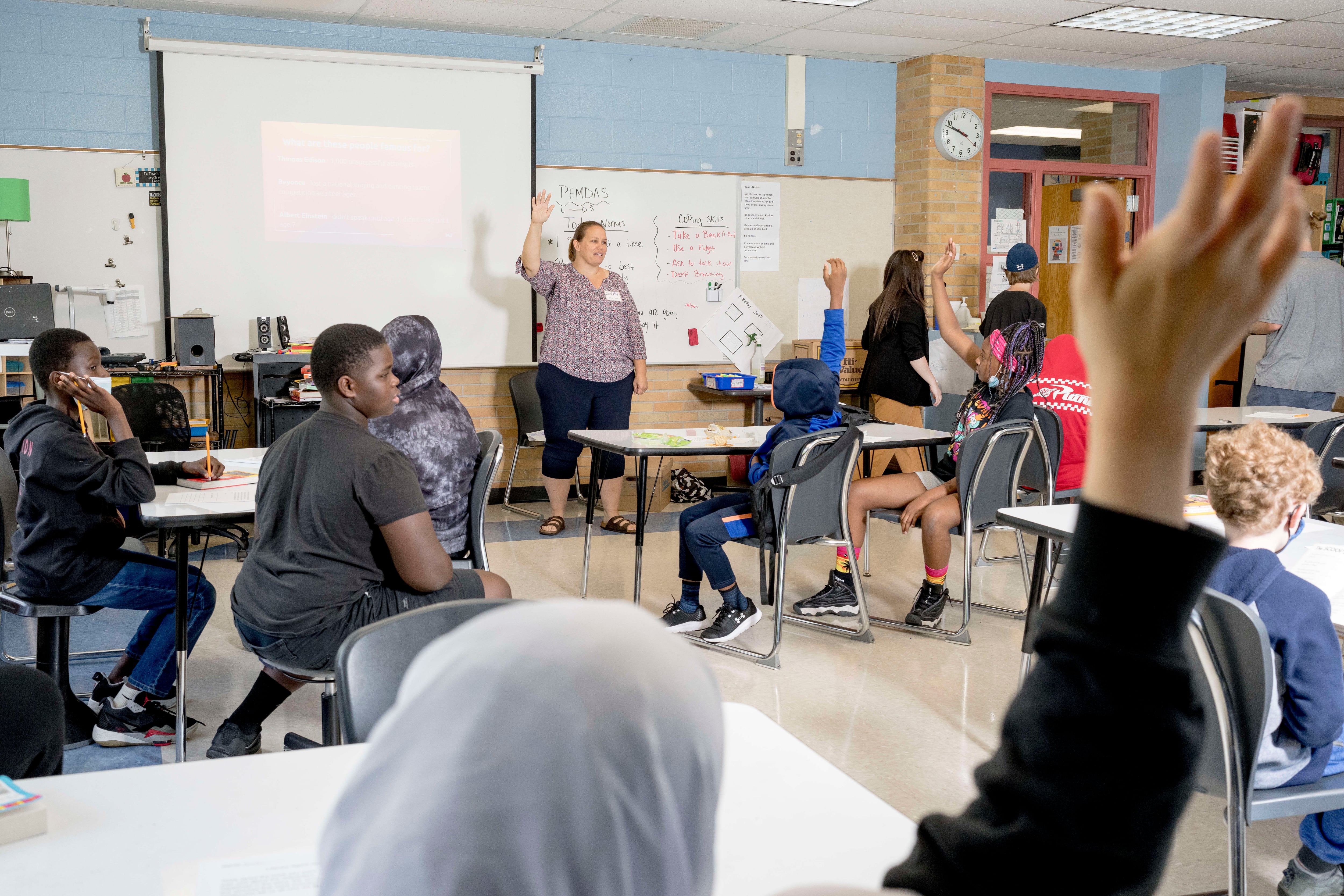A teacher apprenticeship program, stipends and loan forgiveness for student teachers, and the ability for out-of-state teachers to more easily qualify to work in Colorado.
Those are the ideas Colorado lawmakers have proposed this year to address staffing shortages across the state. So far, each proposal has received favorable support from Colorado legislators.
Every year, legislators put forward new programs and tweak old ones in an effort to get more teachers into the classroom and fix a problem that has plagued districts nationwide. Last year Colorado created a new loan forgiveness program and made it easier for retired teachers to get back into the classroom.
On Tuesday, Senate Bill 87 became the latest proposal to move forward in the General Assembly. The bill would create an alternative pathway to help those earning a bachelor’s degree in a subject they plan to teach — such as math, science, or a world language — get the necessary teaching license. It has widespread support from school districts, teachers unions, universities, and other organizations.
The bill cleared the Senate Education Committee on a unanimous vote. It’s sponsored by state Reps. Cathy Kipp, a Fort Collins Democrat, and Don Wilson, a Monument Republican, as well as state Sens. Mark Baisley, a Woodland Park Republican, and Janice Marchman, a Loveland Democrat.
The apprenticeship program would add a fourth option for the state to license a teacher and would be overseen by the Colorado Department of Education. The program would cost the state a little more than $100,000 a year, according to a legislative analysis.
Apprentices would learn on the job for up to four years while they earn their bachelor’s with the ability to extend the timeline by two years.
Apprentices would be allowed to work as a student teacher or substitute and need to take regular competency tests. They then would need to prove their knowledge as a teacher either through a test or a body of work.
Marchman said about 40% of Colorado districts are reporting a teacher shortage and schools need to fill more than 7,000 positions annually. The state’s teacher preparation programs, however, produce only about 3,200 teachers a year, she said.
“We are experiencing a massive teacher shortage,” she said.
Meaghan Sullivan, CareerWise Colorado executive director, said the program would create quality teacher candidates rather than lowering the standard to fill positions. It also would give rural districts the flexibility to develop teachers to meet local needs.
Sullivan said the bill helps coaches, bus drivers, cafeteria workers, or classroom aides who want to become teachers work and learn without having to leave their community.
“That’s really where we see the potential,” she said.
The other two bills have been working their way through the House and Senate.
House Bill 1064, which received initial approval in the House on Wednesday, would create an agreement between Colorado and nine other states to make it easier for teachers to transfer from state to state. A teacher could more easily obtain a teacher’s license in Colorado if they hold one from another member state.
The Interstate Teacher Mobility Compact, as it is called, would also allow states to share disciplinary information and would allow for background checks before teachers could qualify to work in Colorado. The bill is expected to especially help active-duty military and military spouses who need to relocate.
The bill is sponsored by Marchman and Democratic state Reps. Meghan Luken, of Steamboat Springs, and Mary Young, of Greeley.
House Bill 1001 would give student teachers more financial support in the form of stipends and loan forgiveness. The bill has cleared the House and still needs Senate approval.
The bill would raise the income threshold for teachers in training to apply to a $52 million statewide grant program that was started last year. The program provides up to $22,000 in stipends to student teachers and $5,000 in loan forgiveness to those who stick it out. The bill would also allow principals and special service providers to apply and permit student teachers to work in other states in some circumstances.
Along with the three bills, Gov. Jared Polis also has proposed $70 million to provide free training and scholarships to students who want to qualify for in-demand jobs such as teaching, firefighting, and law enforcement. The program aims to ease the way to those jobs, especially those offering lower pay.
Jason Gonzales is a reporter covering higher education and the Colorado legislature. Chalkbeat Colorado partners with Open Campus on higher education coverage. Contact Jason at jgonzales@chalkbeat.org.





